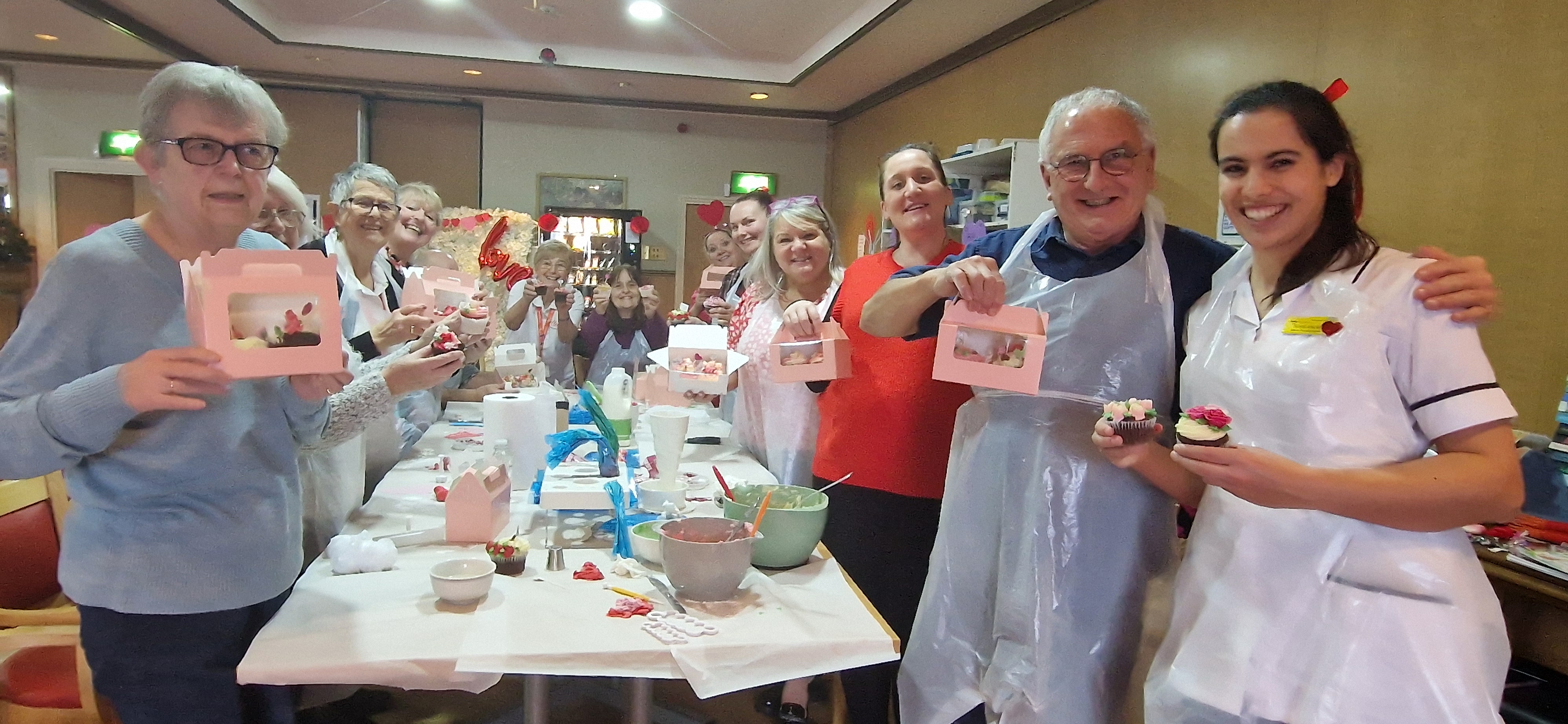But as the above words of senior physiotherapist Rosie Snow demonstrate, the two disciplines are closely interlinked. For physiotherapists looking to add new skills and experiences to their professional bow, working in a hospice environment can be the perfect career accelerant.
As a physiotherapist usually based in a hospital environment, Rosie admits to a few nerves when her ellenor rotation was announced. Fortunately, these didn’t last beyond her first morning.
“Ever since I arrived here, the ellenor team has been incredibly welcoming and so great to learn from. Palliative care was new to me, but ellenor is really opening my eyes to a whole other area of care.”
It’s an area Rosie is relishing, too – particularly the amount of time she’s able to spend with patients.
“In an acute hospital setting, there are often constraints on the amount of time we can dedicate to patients; it can feel a bit rushed. Here at ellenor, we have the chance to dig deeper into what truly matters to each patient – creating personalised goals and focusing on their individual aspirations.”
What might those goals look like? According to Rosie, they’re about independence – giving the patient back what a life-limiting illness so often takes away.
“They want to be able to take the burden off some of their relatives who are providing care; or they might want to resume hobbies they once enjoyed, but now can’t because of their mobility limitations.
“So as physiotherapists, we ask: What adaptations or alternatives to that activity we can work towards? And, if they’re well enough to be doing these exercises regularly, can we actually get them back to doing those things they love so much? All our exercises are designed specifically to help them in reaching their desired goals. It’s a tailored, patient-first approach.”
This goal setting, Rosie explains, is a particularly important part of physiotherapy – in a hospice setting even more so. But why?
“One word: hope. It’s vital for patients to keep believing that there’s hope, that they’re working towards something meaningful, even with the time they have left. This positive mindset can really influence their mood and positively impact their families. When families join in on goals – like doing exercises together – it gives them a sense of purpose too, making everyone feel more involved in the care.”
Through this lens, physiotherapy in a hospice setting is about empowering patients to build up their strength and mobility. To regain some of the independence a life-limiting diagnosis has stripped them of. And, in doing so, they reclaim not only their dexterity, but reclaim their dignity also.”








